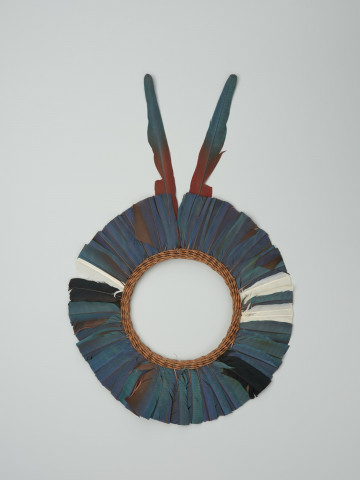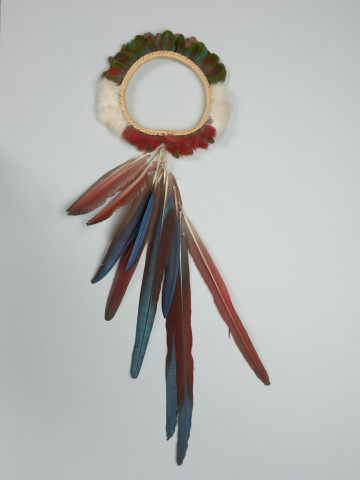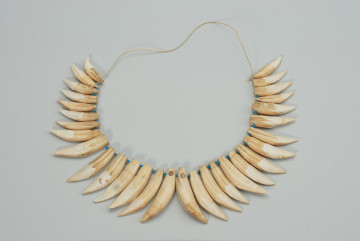
Crown of bird feathers
około 1980 — 1985
National Museum in Szczecin
Part of the collection: Crafts of the Amazon Indians
The culture of Amazonia Indians is divided into two types: savannah and rainforest. Ye'kuana Indians are included in the rainforest culture. In ethnological literature, they are also known as Dekuana and Makiritare. They call themselves Ye'kuana, which means ‘boat people’ or ‘chisel people’ and comes from ye - wood, cu - water and ana - people. They traditionally live in the Venezuelan states of Amazonas and Bolivar. They speak the language of the Carib family. They live in permanent settlements and change them every 7-10 years due to the degradation of the cultivated soil. Traditionally they live in large communal huts called ëttë, which house 20-70 people. Their social organisation is based on a kinship system. The economy is based on fossil cultivation of the land, supplemented with hunting, fishing and gathering. The Ye'kuana Indians, once known as the best hunters in the region, hunt, among others, humpback whales, toucans, white egrets, chickadees, sparrow hawks and ara parrots. Traditionally, they use blowguns or bows with special blunt-ended arrows to hunt birds, which stun the birds and do not stain them with blood. The presented epaulettes are made of variously coloured bird feathers. These are festive ornaments worn by men of high social status during important internal ceremonies and when representing the community outside. Among the most influential personalities of Ye'kuan are the shaman, members of the council of elders and the village chief. In the past, this group also included the best hunters and artisans, such as braiders and boat builders.
Katarzyna Findlik-Gawron
Author / creator
Dimensions
cały obiekt:
Object type
arm adornment
Creation time / dating
Creation / finding place
Identification number
Location / status

około 1980 — 1985
National Museum in Szczecin

około 1990 — 2000
National Museum in Szczecin

około 1971
National Museum in Szczecin
DISCOVER this TOPIC
National Museum in Lublin
DISCOVER this PATH
Educational path